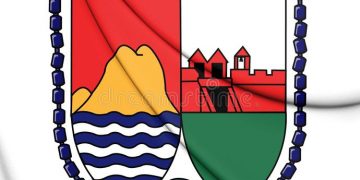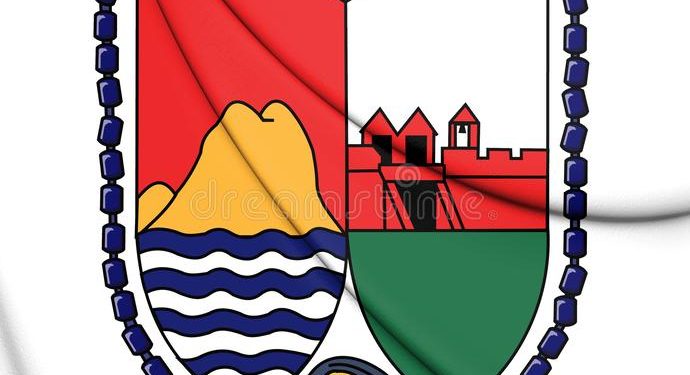ST. EUSTATIUS – Following intensive consultations between the Executive Council of St. Eustatius, GTI (former NUSTAR), Public Health Department (GGD), Harbour authority, Dutch Shipping Inspector and all shipping agents, a Memorandum of Understanding (MOU) was signed on Thursday March 26th 2020, in order to implement stricter regulations in light of the COVID-19 Pandemic. “The maritime industry stipulates its own set of strict operating guidelines, however, due to the COVID-19 virus that causes the corona disease, the Public Entity of St. Euststius found it necessary to implement even stricter guidelines. By signing this MOU signatories have agreed that safety comes first and that there is no business more important than public health,” states Government Commissioner, Mr. Marnix van Rij.
On Sunday March 29th, in a statement on social media, an employee of a company in this oil sector expressed his concern about the safety of people working with these vessels. This in turn resulted in concern from the public regarding the implementation of this protocol. In connection with this discussion, the community is informed that further strict measures have been taken to prevent the virus from reaching our shores and to keep the people of St. Eustatius safe. It aims to minimize contact between land and ship personnel. It describes conditions under which personnel may board vessels, personal protected equipment (P.P.E.) requirements and prescribes how communication must take place. Land personnel can only board a vessel after it has been cleared by the Public Health Department. This department is in charge of supervising the revised protocol.
There is also a key role for the Harbour authority with regard to the implementation of this agreement. Captains of all vessels entering the waters of St. Eustatius are subject to a series of questions by the Shipping Inspector. Attention is paid to the crew list, the last 10 ports visited especially in the past 4 weeks and the maritime health declaration. Ships that do not meet requirements are placed in quarantine. “Due to the strict adherence to the protocol there are presently 4 vessels in quarantine. This means these vessels and their crew are not allowed to dock and there is no physical contact (person to person) with oil inspectors and sample takers.
Two different types of vessels are taken up in the protocol. The protocol for type 1 vessels concerns ships that come for bunkering only. This means no one is allowed to board these vessels and the exchange of documents and samples is done by bucket and communication via VHF. The protocol for type 2 vessels concerns inter-island vessels that provide fuel for various surrounding islands or ocean-going voyage. Here the regulations stipulate that no one will board these vessels until the Public Health Department gives the greenlight.
For type 2 vessels, only a limited number of professionals are allowed on board. This concerns cargo representatives, pilots bringing ships in and out of harbour, persons in charge and sample takers from Emspac, Calebret, Intertech, Petromar and General Maritime. Nobody will board a type 2 low risk vessel without approved gloves, goggles, coverall and face masks. No one will go aboard during dark hours, except for authorized pilots.
The PPE is to be put on upon boarding the vessel and to be taken off and put into a bag before boarding the line boat or return to the jetty. The number of persons, the length of time on board the vessel and the interaction with the crew at a safe distance has been brought to a minimum through these measures.
For the type 2 vessels in the high-risk category the Public Health Department determines if they themselves will board the vessel or whether the vessel will be placed in quarantine. No one will board the vessel until the Public Health Department has given the greenlight. If this is required, it will take place under more stringent measures. “When a ship is deemed as a high-risk category the judgement of our Public Health Department is immediately binding and has to be obeyed. There is no room for opposing or negotiating. Since implementing these extra measures, 27 vessels have been assessed. A total of 4 vessels were placed in self-quarantine. COVID-19 is teaching us to revert to traditional ways of doing business (using the bucket for exchanging oil samples) and at the same time how to use innovation”.


















